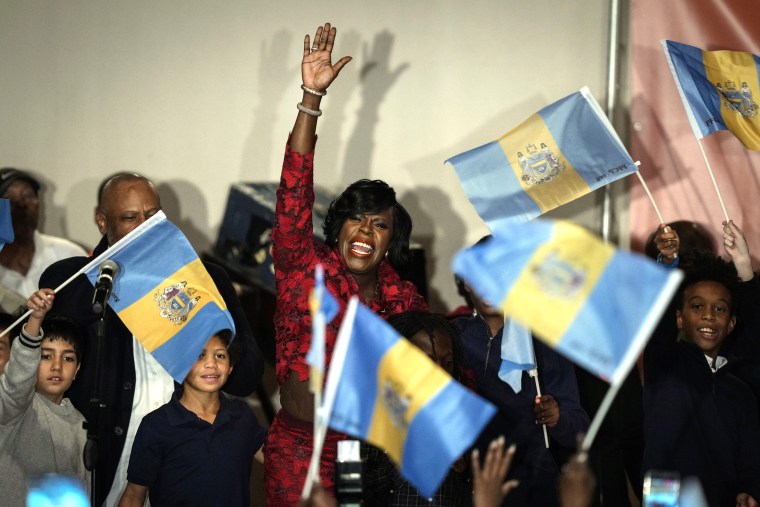Tuesday night’s election is being viewed as a big win for women candidates and reproductive rights.
Nearly 17 months after the Supreme Court struck down Roe v. Wade, abortion rights supporters celebrated in Ohio after voters added the right to access abortion care to the state’s constitution.
Meanwhile, in deep-red Kentucky, Democratic Gov. Andy Beshear won re-election after making support for abortion rights a cornerstone of his campaign. And in Virginia, Democrats kept their majority in the state Senate and flipped the state House, a move that’s being seen as backlash to Republican Gov. Glenn Youngkin who put a 15-week abortion ban at the center of his campaign.
"We’ve learned in recent history that women voters decide our general election and I think not only does it reaffirm, but it gives a clear roadmap to both activists and candidates talking about keeping this issue on the forefront," said Huma Abedin, an MSNBC contributor and longtime aide to former Secretary of State Hillary Clinton on Thursday’s “Morning Joe.”
"We are so divided [as a country] on so many things — but this is something we know," Abedin added. "Americans, whether you live in a red state, a blue state or a purple state, agree that women should have the ability to make their own reproductive health choices."
Women candidates also made several historic firsts. This included:
- In Philadelphia, voters elected Cherelle Parker as the city’s 100th mayor, making her the first woman and the first Black woman to win the post.
- Lily Wu was elected the first Asian-American mayor, defeating incumbent Mayor Brandon Whipple in Wichita, Kansas.
- Rue Landau was elected to an at-large seat, making her the first openly LGBTQ+ person on Philadelphia’s City Council.
- Nina Ahmad became the first South Asian council member for Philadelphia City Council
- Veteran Poughkeepsie City Councilwoman Yvonne Flowers becoming the first black woman to be elected mayor
"According to the Center for American Women in Politics, women represented just a quarter of mayors of towns and cities with more than 30,000 people as of September," said ForbesWomen editor Maggie McGrath on Thursday’s “Morning Joe.” "So with each victory for women, we see government get a little more representative of the population."
